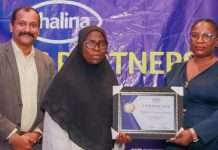Dr Onyenoha Chukwumerije, technical adviser to World Health Organisation (WHO) on pre-qualification and certification of pharmaceutical manufacturers, is the chief executive officer of California-based Onyexx Pharma LLC and Onyexx Nigeria Limited. In this interview with Adebayo Folorunsho-Francis, Chukwumerije bares his mind on pharma challenges and why Nigerian pharma manufacturers who are GMP-certified are yet to get tenders from foreign companies. Excerpts:
What does Onyexx Pharma do?
Onyexx Pharma is into manufacturing. Our job is to help companies to make high quality and efficacious drugs.
How long have you been in business?
It has been in existence for more than 10 years. I worked for a number of companies in the United States like Johnson & Johnson, Progenitor Cell Therapy and other notable ones. I rose to the position of vice president, quality assurance, at Progenitor Cell Therapy, LLC.
What are the objectives of Onyexx Pharma?
Having garnered enough experiences working for different companies in the United States, I said to myself, “Why don’t I go and make it for my country, Nigeria so that my people can enjoy access to these kinds of quality drugs?” This was during the era of Late Dora Akunyili. I kept telling myself “Why don’t I join in the campaign to fight against fake drugs?”
What has your experience been in Nigeria?
I am a consultant for the World Health Organisation (WHO). In fact, the organisation sent me here to assist in the areas of getting GMP pre-qualification certification. This was what I did with the first four companies that got the pre-qualification status. Even as we speak, I am also assisting three more companies which will also soon achieve such certification. The earlier four were Agary, May & Baker, Chi Pharmaceuticals and Swiss Pharma, while the ones in the pipeline are Juhel, Phamatex and Afrabchem.
What challenges have you faced in the last 10 years?
You know the economy is bad in Nigeria at the moment and to achieve GMP is a long process. GMP is relatively easy but to achieve it is a long-term process. The challenge is getting people committed to go the extra mile. It is long term and it costs money.
Having invested heavily in getting their WHO pre-qualification certification, the four companies you mentioned earlier still find it hard getting foreign tenders, unlike what happens with their foreign counterparts. Why is this so?
The tenders will come. I just finished working with Medecine Sans Frontieres (Doctors Without Borders). They are looking at some of our companies with a view to ordering drugs from them. The key thing they are looking for is GMP. I also know that two of those companies with certification have been approached by foreign companies to order drugs. Although it is taking a little time, eventually that will happen.
The federal government too has to help because I hear that there is a high tariff on importation of raw materials. Therefore to make drugs here is quite expensive. You have to use your own diesel and other logistics, unlike those other countries you mentioned. I have been to India several times; they don’t have most of those challenges. We need to compete in price when we are dealing with these companies. Here, we have no power, they (India and other countries) have; hence they sell cheaper.
And remember that pharmaceutical companies in India are practically integrated. This means that they make their raw materials and, at the same time, the finished work. It is only raw materials that I can say we have access to. Even the water to use for the raw materials has to be purified because there is no way we can use it like that. We know the state of water in the country. Until we pick up things and become competitive, we will continue to have challenges.
On a brighter side, some companies and charitable organisations are still looking at our GMP-certified companies to do business with them.
In the next 10 years, where do you see Onyexx Nigeria Limited in the pharmaceutical industry?
As I said earlier, if the federal government can help pharmaceutical companies in terms of tariff; it will go a long way in boosting activities in the sector. This is because we are similar to Bangladesh. I had a World Bank project to study Bangladesh. I think we are indeed similar in terms of size and being emerging economies. Do you know that, in Bangladesh, about 95 per cent of all they use is internally grown? They even export. But we still import drugs.
I don’t know why in Nigeria, foreign companies exhibiting drugs in the country are not encouraged to manufacture most of the medicines we use. For instance, I know that some of our companies, like May & Baker, have a lot of capacity to produce drugs. They should ban most of these drugs imported from India and China. We can make them here.
In addition to my work in Oyexx Nigeria, I used to teach in some universities like Nnamdi Azikiwe University (UNIZIK) and University of Port Harcourt (UNIPORT). We produced world class pharmacists and chemists. Today, we also have over 200 pharmaceutical companies in the country. So, if the government, in conjunction with NAFDAC, will allow us and ban some of these drugs being brought into the country, we can make them. Bangladesh still supplies 95 per cent of the drugs they use internally.














tadalafil 20mg – buy tadalafil online cheap tadalafil online reviews